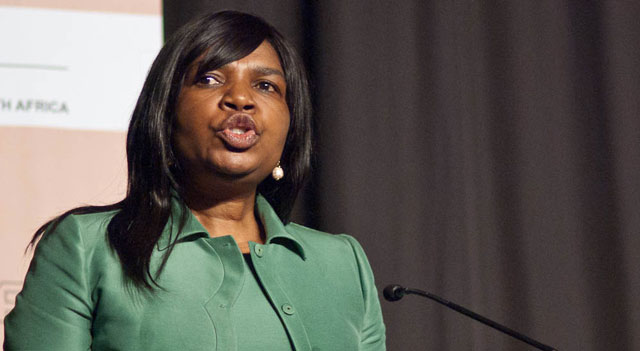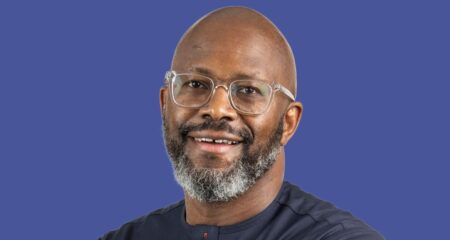
Auditor-general Terence Nombembe has cleared communications minister Dina Pule of wrongdoing around the recent ICT Indaba hosted by the department of communications, the department said in a statement on Friday.
This follows a series of reports in the Sunday Times in June and July in which it was alleged that funds allocated to the staging of the event were drawn by one of the event organisers, Phosane Mngqibisa, who is said to be romantically linked to the minster.
However, Democratic Alliance MP and shadow communications minister Marian Shinn believes Pule must still answer questions about the alleged conflict of interest over Mngqibisa’s involvement in the indaba and wants the public protector to investigate.
Mngqibisa’s company Khemano was contracted by the service provider for the event, businesswoman Carol Bouwer’s company, Carol Bouwer Designs. Mngqibisa was a second signatory to Bouwer’s bank account.
The department of communications said on Friday that due process, in line with procurement policies and processes as prescribed by national treasury, was followed in appointing Carol Bouwer Designs as the service provider for the ICT Indaba.
The auditor-general’s report on the matter will be available at the end of the month.
The department says the idea of holding an ICT Indaba was first mooted as early as August 2010, before Pule became minister, and that Bouwer and Mngqibisa had met previously at private and state functions, including at the 2011 budget speech.
When Pule took on the role of communications minister at the end of October 2011, the ICT Indaba was already a departmental project and in March 2012 the project assumed national importance after cabinet approval.
The department contributed R10,5m to the event, with a further R25,7m coming from Vodacom, MTN and Telkom.
The DA’s Shinn says that when she received notice from the auditor-general’s office that the use of the department’s R10,5m contribution would be probed, but not the nature of the minister’s relationship with Mngqibisa, she wrote to the public protector, Thuli Madonsela.
“I wrote to public protector asking that she pick up my request to investigate the minister’s conduct. She said she would look into it, and asked under what legislation I would want the request made. I said the public protector’s act.”
Shinn says she has not heard whether her request to the public protector would be investigated. “The minister says she’s been cleared, but that is just adding fuel to the smokescreen,” Shinn says. “[The minister] is trying to deflect attention from the issue of a potential conflict of interest. It was always her relationship with the organisers and whether she passed on instructions about which companies were to be used that have been the real issues.”
Shinn says the auditor-general can only investigate matters concerning government money and not money coming from private entities such as the private-sector sponsors of the ICT Indaba. “If sponsors’ money benefited Mngqibisa, it’s beyond the auditor-general’s scope.”
Shinn has also sent a request to the chairman of the parliamentary committee on members’ interests and ethics to investigate the matter. She says the request was sent two weeks ago but that parliament has been in recess and that she only expects a response in coming weeks.
“We don’t know how long ago the organisation of this event started, and whether or not it preceded the minister taking up her position, but it has been billed as the minister’s idea. Still, that’s still not the issue. The minister signed off on the specifications for the event, and it seems a man close to her has already benefited from it,” Shinn says.
“If those agreements were already in place before the minister took her role, one would think she would have distanced herself from the event because of the obvious conflict of interest.”
Shinn says there have been “too many words and not enough actual explanation”, and that this has only led to “further obfuscation of the issue”.
Neither Pule nor Mngqibisa have clarified the nature of their relationship. Shinn says that should the public protector fail to investigate the matter, she hopes the parliamentary committee will do so instead. “Like all MPs, the minister is also subject to parliaments’ rules,” she says. — (c) 2012 NewsCentral Media




